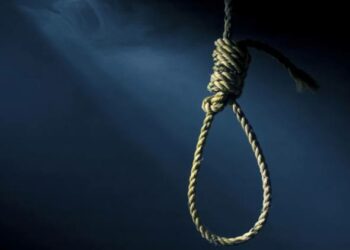Last week as I sat solo at a restaurant sipping on my cappuccino, one of the chefs with whom I am well acquainted walked up to me. I know him to be a passionate Arsenal fan — the last time he accosted me he said emphatically that “we are going to finish in fourth place, and also win Europa, to qualify ‘twice’ for the Champions League as our revenge for being out of that competition for two years —- but this time he had something else on his mind.
“Nkooye embera,” he told me with a sullen look. “I cannot continue like this.”
Long were his tales. The previous day he had left work late, as always, and had on him just Shs. 500, less than half the taxi fare to his place. He walked to Namasuba, half the journey, then used his gold coin to take him the rest of the way. He walked all the way back to work the next day, but that’s fine, he said, because it came off the back of a good night’s rest.
As hard as his life seems, he is not at the bottom of the rung. There are millions worse off who would thank God for a low-paying chef job at a top restaurant. They are all victims of a pseudo-socialist system that was imposed on us 33 years ago, and they don’t even know it.
To understand Uganda’s current socio-economic despair, you need a crash course in communist ideology because that is the gospel our aging leaders fed on in their formative years, all the way until they captured state power. They initially flirted with those ideals until realism (the Cold War was concluding and the Communist block was crumbling) forced them to embrace something akin to Capitalism.
At its core, Communism is a system which believes that power (of any kind) is too precious a commodity to be entrusted to the masses. So it is clustered among a few elite (loosely called government) and the rest, the un-elite, unwashed (loosely called ‘the people’) are nothing but a faceless corpus whose assignment is to serve the interests of the government. It is a system built in the mold of a colony of ants; where worker ants labor themselves to death to sustain the regal comfort of the queen.
But all that, is in practice. In theory Communism is a Utopian system in which all people can live in harmony and achieve their dreams together. It is embellished with rich imagery and captivating slogans to hide its malevolence from the masses, who are kept in perpetual hope.
The only thing worse than Communism is a mixture of Communism and Capitalism; and that is what we’ve had in Uganda for 33 years.
Having grown up as one thing and been forced to rule as another, Museveni gleaned the deceitfulness and sinister-ism of Communism and blended it with the ravenous, consumerist appetite of Capitalism to produce a smoothie of misery for Ugandans.
Communism (in theory at least) eschews greed because it’s considered the root of all evil. Capitalism embraces materialism because the people who indulge in it have earned that right through individual enterprise. Musevenism has the entitlement mentality of the Communist top brass with the untamed avarice of a Capitalist merchant.
Communists believed that poor people are easier to govern. When citizens acquire middle-class comfort and are no longer concerned about life’s basics like food, shelter, movement, school fees…., their next demand is for their opinions to be heard, and those opinions are often of a political nature. Such people demand logical explanations not handouts, they can use their collective resources to root out one government and bring another. They can be an alternative source of power, and communists loathe that. Therefore, they work to diminish the middle-class and create a system of masters and serfs. That is what Museveni has done.
As long as the citizenry is kept chasing after life’s basics, they cannot afford the luxury of grandiose political opinions. The chef who walks to and from work every day is hounded by one problem after another and hasn’t the time to express political sentiments. That’s one thing Museveni has ensured so expertly through the decades.
In 1986, Uganda’s total exports were a misery $417m, of which a staggering 94 percent ($394m) was from coffee. The remaining six percent was mostly other raw agricultural produce like cotton, tea, tobacco, hides and skins and the like. Yet in spite of our over-dependence on coffee and a guerrilla war that had been raging for five years, Uganda had a positive Balance of Trade (BOT) of $30m.
What’s more is that rural Uganda was rich and thriving. When I was in Namilyango College round about that time, many of my classmates were sons of what you would now call peasant farmers, but there was nothing peasant about them. They were living decent lives, some even bordered on affluence. There was a system that ensured that they were well paid for their produce. It was called Cooperative Societies. A friend of mine whose father was the chairman of Banyankore Kweterana told me that their society’s turnover in 1990 was well over Shs3 billion (I cannot verify that amount, but you get the drift). Three billion would be a decent figure today; imagine how much more it was 30 years ago.
Many youth reading this will struggle to believe that there was a time systems worked in Uganda; really worked!
By 1989, our BOT had fallen to negative $30m; that’s how long it took for the pseudo-communists to abandon all restraint and embrace capitalistic appetites. But that’s not about all.
Cooperative Societies were systematically disbanded, their Tata trucks were taken from transporting produce to ferrying soldiers, and with one blow Museveni, in the truest of communist traditions, broke the backbone of rural wealth. Make no mistake, it was not one of those miscalculated or ill-advised policies (and there have been several), this was a deliberate and well-calculated move that was aimed at entrenching him in power.
Uganda is still one of the Top Ten coffee exporters in the world (Number Eight, with an annual revenue of $635m) but almost all companies involved in the export are foreign-owned; giving Ugandan farmers a very raw deal.
Communists use poverty as a political tool.
If peasant farmers had continued with their pre-Museveni prosperity trajectory, they wouldn’t be so easy to deceive. He would have to appeal to their intellect and aspirations. As it is, he only has to give them a hoe in exchange for their vote. He has reduced them to that.
If he keeps them poor, they will keep him in power.
That’s why opposition politicians can say anything they want on radio or television in Kampala, but the moment they carry those views to upcountry stations, the political police descends on them like locusts. That’s because the old man with a hat does not want anyone waking his peasants up from their sleep. As long as opposition is in Kampala hotels and on social media, the leopard is unmoved.
Remember the plot from the Jurassic Park movies?
Scientists recreate dinosaurs in the lab and the gigantic creatures turn around to destroy their creators. That’s exactly how Museveni’s scheme to impoverish Ugandans will turn out; and it’s already beginning to bite.
The private sector is far too small to carry the ever fattening public sector. The tax base seems to be narrowing to the point that you know every annual budget is going to increase levies on airtime, fuel and beverages; the only easily taxable items! Also betting, mobile money and a few others, but it’s still meager.
Yet money must still be found to finance pet projects like an airline and massive military hardware. That leaves two options; the first is growing our national debt; which stood at 41.5 trillion in June last year (a rise of 22 percent from the previous year). That is almost twice the nations GDP. Currently, annual interest payments for both domestic and external debt stand at Shs 2.3 trillion (17 percent of our total revenue collections) with is above the 15 percent limit set
in Public Debt Management Framework.
The second option is to squeeze people who are already against the wall. That’s the one that will eventually cause the toppling of this junta. Everyone has a limit. There are already so many people out there who have absolutely nothing to lose. A slight increase in that column might cause another Sudan.
Enough of this Rant. I will continue from there next week.
God bless you all.
Do you have a story in your community or an opinion to share with us: Email us at editorial@watchdoguganda.com












